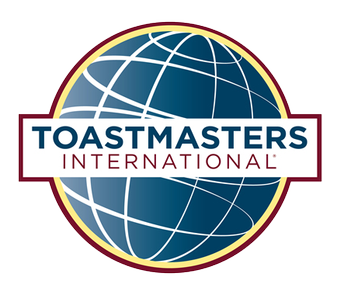When preparing for a speech, one of the biggest decisions you’ll face is whether to memorize your entire speech or to rely on notes, bullet points, or even impromptu speaking. The idea of memorizing a speech seems straightforward: it ensures you know exactly what to say and prevents you from losing your place during your presentation. But is memorization really the best approach? Should you commit every word to memory, or is there a more effective way to communicate your message?
In this blog post, we’ll dive into the pros and cons of memorizing a speech and help you decide whether memorization is the right strategy for your next public speaking engagement.
The Pros of Memorizing a Speech
1. Increased Confidence
One of the key advantages of memorizing your speech is that it can significantly boost your confidence. When you have your entire speech committed to memory, you know exactly what to say, which can reduce anxiety and the fear of forgetting your lines. This confidence can be especially helpful in high-stakes situations, such as delivering a keynote, pitching an idea, or speaking in front of a large audience.
Memorization can create a sense of mastery over your material. When you can recite your speech without relying on notes, you feel in control of the content and your delivery, which helps reduce the stress of public speaking. This confidence also translates into stronger stage presence, as you’re less likely to be distracted by reading off notes or worrying about forgetting your next point.
2. Smooth and Polished Delivery
A speech that is memorized well can be delivered with smoothness and fluency. When you know your material inside and out, you can focus entirely on how you present it, rather than on recalling what comes next. This makes it easier to be expressive with your body language, vary your tone of voice, and connect with your audience.
Memorization allows for a more polished and professional delivery, with fewer awkward pauses, stumbles, or dead air. You can maintain eye contact with the audience, which helps foster connection, rather than looking down at notes or slides. This is particularly important in more formal settings, such as public events or competitions, where your delivery can significantly impact your overall performance.
3. No Dependence on Notes
When you memorize your speech, you’re not reliant on notes or slides, which can sometimes detract from your performance. If you rely on notes, there’s always the risk of losing your place, fumbling for the right words, or becoming distracted. Additionally, reading from notes can make you appear disengaged or disconnected from the audience.
By committing your speech to memory, you avoid these pitfalls and can fully engage with your listeners. You’re free to move around the stage, interact with your audience, and deliver your message in a way that feels natural and engaging.
The Cons of Memorizing a Speech
1. Risk of Sounding Robotic or Stiff
While memorizing a speech can make you sound confident, it can also cause your delivery to sound rehearsed or unnatural. If you’ve memorized every word, there’s a tendency to “recite” your speech, rather than genuinely communicate with your audience. This can make your performance sound stiff, robotic, or overly rehearsed, which may cause your listeners to disengage.
The challenge with memorization is finding a balance between being precise with your language and sounding conversational. If you’re too focused on getting every word right, you might lose the spontaneity and energy that makes your speech engaging. You can also end up sounding like you’re reading from a script, which diminishes your ability to connect with the audience on an emotional level.
2. Potential for Forgetting or Getting Stuck
Memorizing a speech can lead to the uncomfortable situation of forgetting a line or a portion of your speech. Even experienced speakers can get “stuck” when they lose their place in a memorized speech, and this can cause anxiety and disrupt the flow of the presentation. Unlike relying on notes or bullet points, where you can recover more easily, forgetting a memorized line can create a larger sense of panic, especially if you’ve committed to delivering a word-for-word performance.
If you forget a key point, it can be harder to recover naturally, which might make you feel flustered or embarrassed. Even with a well-memorized speech, you need to be prepared for the possibility that you’ll lose your place—and you may struggle to recover seamlessly.
3. Overemphasis on Memorization Can Hinder Spontaneity
Public speaking is not just about delivering a prepared script. It’s about connecting with your audience, responding to their reactions, and adapting your message on the fly. Memorizing your speech word-for-word can inhibit this flexibility.
If you are too focused on delivering the exact words you memorized, you might miss the opportunity to adjust your message based on the audience’s response or to make real-time adjustments to your delivery. Public speaking requires the ability to think on your feet and respond to feedback, questions, or even unexpected circumstances. Relying too heavily on memorization can limit your capacity to engage with your audience dynamically.
Alternatives to Memorization: Notes and Outlines
Instead of memorizing every word of your speech, there are other methods you can use to prepare while maintaining flexibility and spontaneity:
- Outlining: Creating an outline with key points and subpoints allows you to stay on track without feeling bound by a script. This approach gives you the freedom to speak naturally while ensuring you cover all the necessary information. You can refer to your outline for a quick refresher if needed but still focus on engaging your audience.
- Bullet Points: Some speakers use bullet points as cues to remember the main ideas they want to discuss. This approach helps keep you focused and organized while allowing room for improvisation. By having key talking points at your fingertips, you ensure that your message remains clear while adapting your delivery to the flow of the conversation.
- Cue Cards: If you’re worried about forgetting a key detail but don’t want to memorize your entire speech, cue cards can be a useful tool. Write down the main points or quotes on cards that you can glance at as needed. Cue cards can act as a safety net while still allowing you to engage with your audience without being glued to a script.
When Memorization Might Be Right for You
While there are downsides to memorizing a speech, there are situations where it may be the best approach:
- Short Speeches: For brief speeches or elevator pitches, memorization can work well. A short, concise message can be easily memorized and delivered with impact.
- Competitive Speaking: In speech contests or formal competitions, memorization is often required. If you’re preparing for a Toastmasters competition, for example, you may need to memorize your speech in order to comply with the rules and deliver a smooth, polished performance.
- Important Presentations: If you’re giving an important speech at a major event or to a high-stakes audience, memorizing your speech can ensure you stay on message and present your ideas with precision. It also eliminates the risk of losing your place during a critical moment.
Memorization vs. Flexibility
Ultimately, whether you should memorize your speech depends on the situation and your personal comfort level. Memorizing a speech can increase your confidence, make your delivery smoother, and eliminate dependence on notes. However, it can also cause you to sound robotic, increase the risk of forgetting your lines, and limit your ability to adapt during your presentation.
If you’re just starting out in public speaking, a more flexible approach using an outline or bullet points may be better suited to help you develop your natural speaking style. For more experienced speakers or situations where precision is key, memorization can help you present with confidence and professionalism.
No matter what approach you choose, the most important thing is to practice. Familiarity with your material, whether memorized or outlined, will always lead to a more engaging and effective speech.










